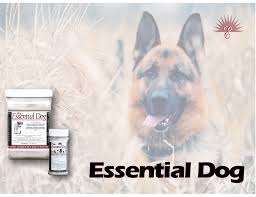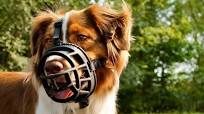The Importance of Dog Health Care
Dogs are more than just pets; they are beloved members of our families. Just like us, dogs require proper health care to ensure they live long and happy lives. Here are some essential aspects of dog health care that every responsible pet owner should be aware of:
Regular Veterinary Check-ups
Just like humans, dogs need regular check-ups with a veterinarian to monitor their overall health. Routine examinations can help detect any potential health issues early and ensure your dog is up-to-date on vaccinations.
Proper Nutrition
A balanced diet is crucial for your dog’s health and well-being. Make sure to provide high-quality dog food that meets their nutritional needs based on factors like age, size, and activity level. Avoid feeding them human food that can be harmful to their digestive system.
Regular Exercise
Exercise is essential for maintaining your dog’s physical and mental health. Regular walks, playtime, and other forms of physical activity help prevent obesity, promote muscle strength, and keep your dog mentally stimulated.
Dental Care
Many pet owners overlook the importance of dental care for dogs. Dental problems can lead to serious health issues if left untreated. Brushing your dog’s teeth regularly and providing dental treats or toys can help maintain good oral hygiene.
Grooming and Hygiene
Regular grooming not only keeps your dog looking neat but also plays a vital role in their overall health. Brushing their coat, trimming nails, cleaning ears, and bathing when necessary help prevent skin infections and other hygiene-related problems.
Parasite Prevention
Fleas, ticks, worms, and other parasites can pose serious health risks to your dog. Use preventive measures such as regular flea and tick treatments, deworming medications as recommended by your vet, and keeping your dog’s living environment clean to protect them from parasites.
By prioritizing these aspects of dog health care, you can ensure that your furry friend leads a healthy and happy life by your side.
Essential Dog Health Care: Top 5 FAQs Answered for Optimal Well-being
- How often should I take my dog to the veterinarian for check-ups?
- What is the best diet for my dog’s specific needs?
- How much exercise does my dog need on a daily basis?
- What are the signs of dental problems in dogs and how can I prevent them?
- How do I protect my dog from fleas, ticks, and other parasites?
How often should I take my dog to the veterinarian for check-ups?
Regular veterinary check-ups are essential for maintaining your dog’s overall health and well-being. It is recommended to take your dog to the veterinarian for check-ups at least once a year. However, the frequency of visits may vary based on factors such as your dog’s age, breed, and any pre-existing health conditions. Puppies, senior dogs, and those with chronic illnesses may require more frequent visits to monitor their health status closely. Your veterinarian can provide personalized recommendations on the ideal check-up schedule for your furry companion to ensure they receive the necessary care and preventive measures to stay healthy.
What is the best diet for my dog’s specific needs?
When determining the best diet for your dog’s specific needs, it is essential to consider factors such as their age, breed, size, activity level, and any existing health conditions. Consulting with a veterinarian or a professional pet nutritionist can help you create a tailored diet plan that meets your dog’s unique requirements. High-quality commercial dog foods that are formulated to meet AAFCO (Association of American Feed Control Officials) standards can be a good starting point. Additionally, some dogs may benefit from specialized diets such as grain-free or hypoallergenic options based on their individual sensitivities. Monitoring your dog’s weight, energy levels, and overall health can also help you adjust their diet as needed to ensure they receive the proper nutrition for optimal well-being.
How much exercise does my dog need on a daily basis?
Ensuring your dog gets an adequate amount of exercise is crucial for their overall health and well-being. The amount of exercise your dog needs on a daily basis can vary depending on factors such as breed, age, size, and health condition. As a general guideline, most dogs benefit from at least 30 minutes to 2 hours of physical activity each day. However, high-energy breeds or younger dogs may require more exercise to stay mentally and physically stimulated. It’s important to observe your dog’s behavior and adjust their exercise routine accordingly to keep them happy, healthy, and maintain an ideal weight. Regular walks, playtime, and interactive activities are great ways to ensure your furry companion gets the exercise they need to thrive.
What are the signs of dental problems in dogs and how can I prevent them?
Dental problems are common in dogs and can have a significant impact on their overall health if left untreated. Signs of dental issues in dogs include bad breath, swollen or bleeding gums, yellow or brown tartar buildup on teeth, difficulty chewing, and excessive drooling. To prevent dental problems, it is essential to establish a regular dental care routine for your dog. This includes brushing their teeth regularly with dog-friendly toothpaste, providing dental chews or toys to help clean their teeth, and scheduling professional dental cleanings with your veterinarian as needed. By maintaining good oral hygiene practices, you can help prevent dental issues and ensure your dog’s overall well-being.
How do I protect my dog from fleas, ticks, and other parasites?
To protect your dog from fleas, ticks, and other parasites, it is essential to implement preventive measures regularly. Start by using veterinarian-recommended flea and tick treatments that are suitable for your dog’s size and age. These products can help repel and kill parasites before they become a problem. Additionally, keep your dog’s living environment clean by regularly vacuuming carpets, washing bedding, and maintaining a tidy outdoor space. Avoid areas known to be infested with parasites and check your dog for any signs of infestation after walks or outdoor activities. Regularly deworming your dog as recommended by your vet is also crucial in preventing internal parasites. By staying proactive and consistent with parasite prevention methods, you can help safeguard your dog’s health and well-being.




